Relationships are seldom perfect. Even in the healthiest of bonds, along with love, care, and happiness, there will be conflict and disagreements, and partners may call out each other on certain behaviors. However, when you’re wrongly accused of things you haven’t done or said, it can make you lose confidence in yourself and the relationship. This is just one of the many psychological effects of false accusations in a relationship that can cause lasting damage.
Repetitive accusations can gaslight you into rethinking the base of your relationship, weakening the delicate web of trust and understanding that connects two people. Although accusations may originate from legitimate worries or experiences, they present a significant problem since they alter the dynamics of relationships.
Given their deep impact, the psychology of false accusations and how they affect the people involved in the relationship warrants a deep exploration. We bring you these insights in consultation with California-based psychiatrist and Cognitive Behavior Therapist, Dr. Shefali Batra (MD in psychiatry), who specializes in counseling for separation and divorce, breakup and dating, and premarital compatibility issues.
What Are False Accusations In A Relationship?
Table of Contents
Simply put, being accused of doing something that you did not do or intend to do amounts to false accusations in a relationship. These can take many different forms, and they can be subtle or overt. According to Dr. Batra, most accusations stem from a place of insecurity or are a result of projection and therefore can be sorted out through open and honest communication. However, false accusations create a vicious cycle that leads to the erosion of trust and vulnerability, breakdown of communication, and makes the foundation of the relationship weak.
The psychological effects of false accusations in a relationship can range from stress and guilt to anxiety, low self-confidence, and trust issues. Dr. Batra adds, “These untrue accusations can also negatively impact the accuser. They may feel guilty or ashamed if they realize that they were wrong, or they may become defensive and refuse to admit that they made a mistake.”
She goes on to explain, “A person may falsely accuse their partner of not giving them enough attention, flirting with others, choosing other people or situations or events over them, and more. Such continuous accusations in a relationship can turn out to be really problematic and make it difficult for both partners to find common ground.
Related Reading: 17 Psychological Facts About Cheating – Busting The Myths
“As much as people believe that an accusation is an open expression of disagreement and unhappiness with the fault of another person, most accusations come from a defense mechanism called projection. When a partner has done something wrong, or worthy of unacceptance the other partner can have a discussion. But when this is expressed disparagingly in a blameworthy fashion, it is called an accusation.”
It can be hard to recognize the signs of a false accusation, especially if it’s a pattern in your relationship because you don’t really know whether your partner is willfully wrongly accusing of something or their perspective on the matter is just diametrically opposed to yours. However, recognizing this problem for what it is and finding a way to break the pattern is essential for rebuilding trust in the relationship. To help you do that, here are some common examples of false accusations in a relationship:
- Cheating: When you are being falsely accused of cheating by your partner, it’s their fears and insecurities they’re projecting onto you. However, this doesn’t make the accusations any less hurtful and can take a toll on the relationship over time. This is among the most telling examples of the psychology of false accusations and their impact on a relationship. Over time, the trauma from being falsely accused can alter the nature of your relationship
- Lack of commitment: Accusing a partner of lacking commitment just because they couldn’t honor a promise they made to you or have been too busy to prioritize the relationship is a classic example of a disproportionate response to an issue resulting in false accusations
- Abuse: One partner accusing the other of being abusive when there is no evidence of physical, psychological, or emotional abuse is another classic example of false accusations in a relationship. Given the grave nature of such accusations, the person at the receiving end may feel heartbroken and shattered by how their partner views them
- Lying: Lying can erode the trust between partners but so can false accusations about lying. If your partner cannot believe what you tell them and outright accuse you of lying, it may become increasingly difficult for you to connect emotionally or physically with each other
- Financial impropriety: One partner accuses the other of mismanaging finances or being dishonest with money, when, in fact, they have been responsible and truthful. It may stem from mistrust or financial stress
- Lack of responsibility: Telling a partner they shirk responsibility just because they didn’t do something exactly the way you would’ve (or expected them to) is a telling example of how an inability to find common ground can lead to false accusations

9 Psychological Effects Of False Accusations In A Relationship
When your partner falsely accuses you of things as grave as infidelity, abuse, or financial impropriety, it can chip away at your confidence in your abilities as a partner and make you question the foundational strength of your relationship. My friend, Rob, struggled with something similar in his marriage. His wife once found a woman’s name in his Facebook search history, and that was enough for her to start accusing him of cheating on her.
She was convinced that he had reconnected with an ex and was having an affair with her, when, in fact, the woman he had searched for was just someone he had a crush on in high school and that search was nothing more than some harmless social media stalking everyone indulges in once in a while. But she refused to believe him. From that point forward, the dynamics of their relationship changed significantly. She treated him like a cheating husband, even in the absence of any concrete evidence to back that suspicion, and acted like a jilted wife.
Related Reading: 8 Ways Blame-Shifting In A Relationship Harms It
The trauma from being falsely accused changed Rob so much that he isolated himself from his friends and loved ones, reducing his life to work and home. Over time, the resentment and anger grew so much that Rob ultimately decided to separate from his wife and is currently working through his emotional wounds in therapy.
Explaining why this happens and elaborating on the psychological effects of false accusations in a relationship, Dr. Batra says, “The cycle of accusation can become vicious. The slightest insecurity can make the accuser blame their partner. This can make the accused angry, frustrated, or irritable, and if they are gullible and vulnerable, they may feel guilty — at least initially. They will apologize and the accuser’s insecurity will be placated momentarily. But soon, the cup will be empty again.
“The accuser will keep needing more reassurance and apologies. So, while the accuser becomes more narcissistic, the person who is accused begins to lose confidence, more and more, making the relationship empty.” You can see how damaging the psychological effects of false accusations in a relationship can be. Here’s how they can destroy even the strongest of bonds:
1. Betrayal and mistrust
The trauma from being falsely accused can become a breeding ground for mistrust and a sense of betrayal in the relationship. The accused may feel betrayed and hurt that their partner would level such grave false accusations against them. This can lead to a breakdown of trust in the relationship. This could even lead to secrecy in a relationship. The accused partner may no longer feel comfortable sharing things that they suspect can trigger allegations against them.
Related Reading: 9 Expert Tips On How To Let Go Of Hurt And Betrayal
2. Anxiety and stress
False accusations can cause the accused anxiety and stress and can make the affected person walk on eggshells around their partner and the relationship may turn toxic for them. One of the most debilitating signs of a false accusation is an inability to relax around your partner. “You constantly worry that they will accuse you of something you didn’t do, making it harder for you to sleep, focus on work, or just go about your life,” says Dr. Batra.

3. Guilt and shame
Even if the accused is innocent, they may feel guilty and ashamed for making their partner feel bad and like they cannot trust them. This misplaced guilt can leave them feeling overwhelmed while also affecting their self-esteem. This can lead to relationship trauma. They might feel like they’re not worthy of being in a relationship or being loved.
4. Relationship breakdown
If the tendency of leveling false accusations is not addressed, it can cause irreparable damage to the relationship. “The accused may feel that they can’t continue in a relationship with someone who doesn’t trust them, while the accuser may feel that they can’t be in a relationship with someone whom they perceive as dishonest,” says Dr. Batra.
Related Reading: 15 Signs Your Relationship Is Beyond Repair
5. Constant fights
False accusations in a relationship can lead to constant fights that can negatively impact your relationship. Since there is already an erosion of trust, conflict resolution can seem near impossible, making it difficult for a couple to salvage their bond.
6. Resentment
The trauma from being falsely accused by your partner can make you deeply bitter toward them. “You know you deserved to be treated better and your partner’s failure to see that can pave the way for resentment in the relationship,” says Dr. Batra. As these feelings persist, they can leave you feeling overwhelmed and eclipse the love you feel for your partner. The result? Ugly arguments and fights that result in you giving each other silent treatment for days or even weeks.
7. Emotional distance
When your partner wrongly accuses you of unhealthy behaviors in a relationship, you start to pull away from your partner little by little. You may not confide in them anymore, talk less, and start avoiding spending time with them. “Over time, this causes emotional distance and a feeling of loneliness creeps in,” says Dr. Batra. If it goes on unchecked, you may even begin to entertain thoughts about ending the relationship.
Related Reading: Feeling Lonely In A Relationship – 15 Tips To Cope
8. Self-doubt and confusion
When a person you love deeply and trust implicitly starts accusing you of something, you may stop to wonder whether you have done or said something to trigger such a reaction, at least in the beginning. Even if you’re certain that what your partner is saying is untrue and baseless, their confidence and conviction may make you wonder, “Did I do something wrong? Am I remembering things wrong? What if I unwittingly did something that made my partner feel this way?” “This is a form of gaslighting in a relationship,” says Dr. Batra.
9. Feeling unsafe in your relationship
One of the most debilitating psychological effects of false accusations in a relationship is that you start feeling unsafe around your partner. A relationship should be a safe space where you can unabashedly be your authentic self. However, if your partner has made it a habit to wrongly accuse you of things you haven’t done, this sense of safety begins to dissipate. Even more so, if the accusations are accompanied by toxic behaviors like yelling, name-calling, or smashing things.

How To Handle False Accusations In A Relationship?
Handling untrue accusations in a relationship can be challenging, but it is important to address the issue head-on to prevent it from taking a toll on your bond. Wondering what to do when someone makes false accusations against you? Dr. Batra recommends the following steps:
1. Remain calm
If your partner wrongly accuses you of something, try to respond calmly and avoid getting defensive or angry. Trying to control your anger may be difficult, but take a deep breath and focus on communicating respectfully and constructively.
- Talk to your partner. It might help you figure out why they’re doing, what they’re doing
- Be respectful toward your partner. This might help them understand they’re wrong about you
- It is natural to react to false allegations but try to do so in a calm manner. Anger can make a bad situation worse
Related Reading: How To Fix Lack Of Communication In A Relationship – 15 Expert Tips
2. Seek clarity
Wondering, what to do when someone makes false accusations against you? Seek clarification from your partner. Ask for specific examples or instances where they feel you have acted in a certain way. This will help you to understand their concerns and address them more effectively. Here’s how you can approach this:
- Make time to sit with your partner and have a conversation
- Listen to them
- Seek clarity about yourself
- Ask them if any action of yours has hurt them in the past, or if they are unhappy in the relationship, or if they dislike/disagree with any particular aspect of how you behave in the relationship
3. Take care of yourself
When you’re reeling under trauma from being falsely accused, you may find yourself emotionally drained and stressed out. Take care of yourself by engaging in self-care activities, seeking support from friends and family, and maintaining a healthy lifestyle. Here are some acts of self-care you can adopt:
- Invest your time in productive activities and keep yourself busy
- Try meditation and yoga to center yourself and purge yourself of the negativity
- Engage with friends and family, their support can help you get through the tough times
4. Provide evidence
If there is evidence that the accusation is false, present it to your partner. This can help dispel any doubts or concerns they may have and strengthen your case. If your partner gets defensive, it’s best to distance yourself from them for some time. Revisit the conversation when they’re calmer.
Related Reading: Are You A Toxic Couple? Take This Test To Find Out
5. Set boundaries
Wondering, what to do when someone makes false accusations against you? Set clear and firm boundaries in your relationship. Talk about privacy, transparency, personal space, and communication, and clearly express what’s acceptable and what’s not. For example, if your partner repeatedly accuses you of cheating and sneakily checks your phone for proof of your transgressions and you find it hurtful or disrespectful, let your partner know that they must not access your phone in secret.

6. Consider counseling
You can try some couples therapy exercises at home, and if false accusations persist, consider seeking the help of a professional counselor or relationship therapist. They can provide a safe and neutral space for you and your partner to address the underlying issues and improve your communication and trust. Dr. Batra also suggests individual therapy for the insecure partner to build their self-confidence and sense of self, which can, in turn, tackle the tendency to level baseless allegations. If you’re considering seeking help, you can avail of Bonobology’s counseling services from the comfort of your home.

7. Prioritize self-preservation
If despite your best efforts, your partner continues to level unfounded accusations against you, it may be necessary to prioritize self-preservation. You may need to set boundaries and enforce them or consider ending the relationship. Remember, you deserve to be treated with respect and kindness, and should not tolerate any mistreatment in the name of love. If it starts taking a toll on you, maybe it is time to get out of the emotionally exhausting relationship.
Talking about how to handle false accusations in a relationship, Dr. Batra said, “The accused partner should be in touch with reality. They should speak out openly, use assertive communication, and reassure their partner. If the accusing partner is extremely insensitive and insecure and continues to do so, professional help should be sought.”
Key Pointers
- The psychological effects of false accusations in a relationship can run deep and be mentally devastating for both parties
- False accusations cause mistrust, anxiety, guilt, and constant fights
- To effectively deal with the tendency of false accusations, you need to avoid fighting, establish assertive communication, and seek clarity
- Being in a relationship where you get falsely accused can be traumatic and must be addressed promptly. You can either try to resolve this issue on your own or seek professional help
A user on Reddit claimed that he broke up with his girlfriend of two years because she kept accusing him of cheating. The user said that he tried proving his loyalty and talked it out with his girl but none of it mattered to her. Ultimately, walking away from the relationship was his only resort. As you can see, being falsely accused constantly can often lead a relationship to a bad end. So, if you’re being falsely accused by your partner, do not ignore the elephant in the room. You can find a way out of this as long as you’re both willing to work toward finding a solution.
10 Things To Do When You Are Drifting Apart In Your Relationship
Your contribution does not constitute a charitable donation. It will allow Bonobology to continue bringing you new and up-to-date information in our pursuit of helping anyone in the world to learn how to do anything.



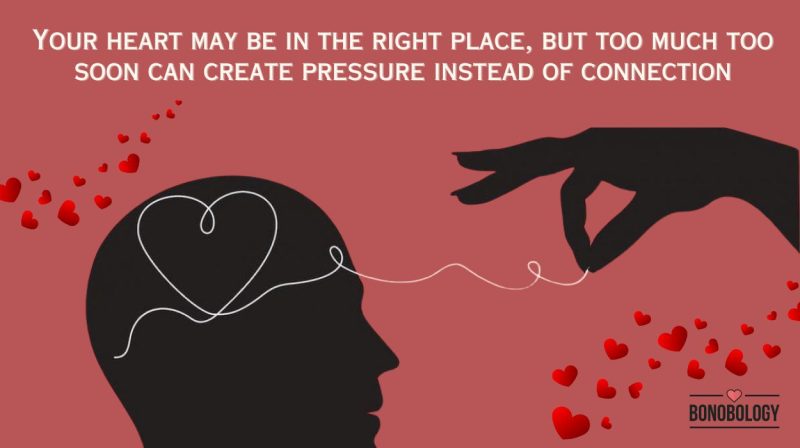






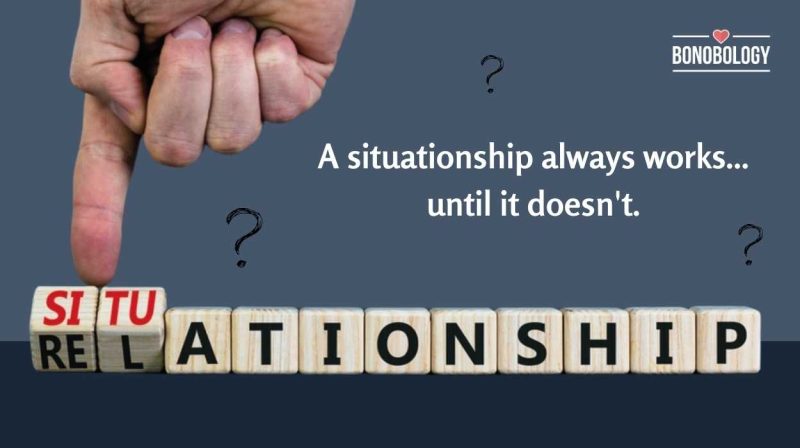

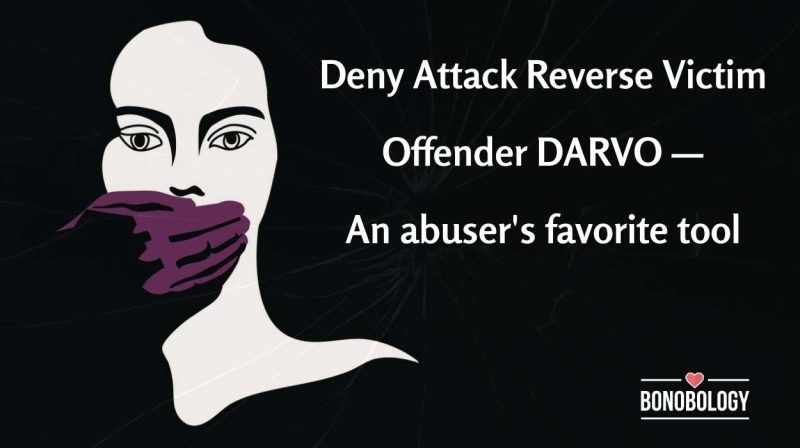

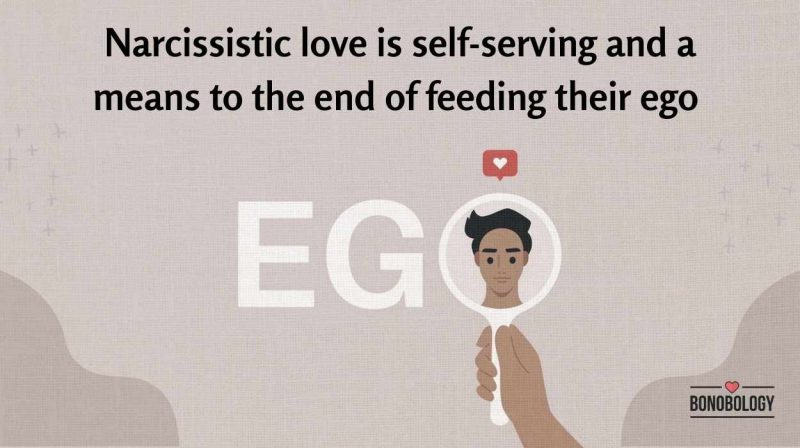

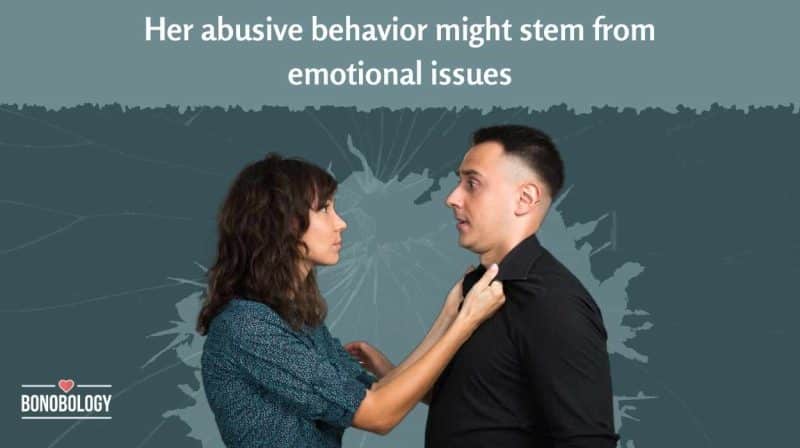
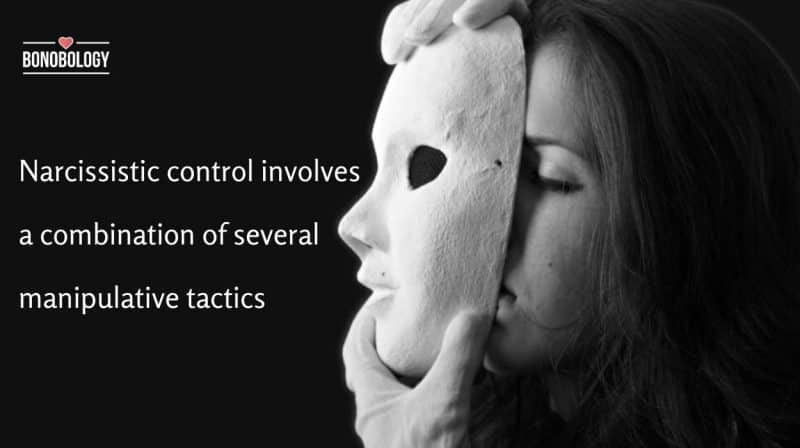
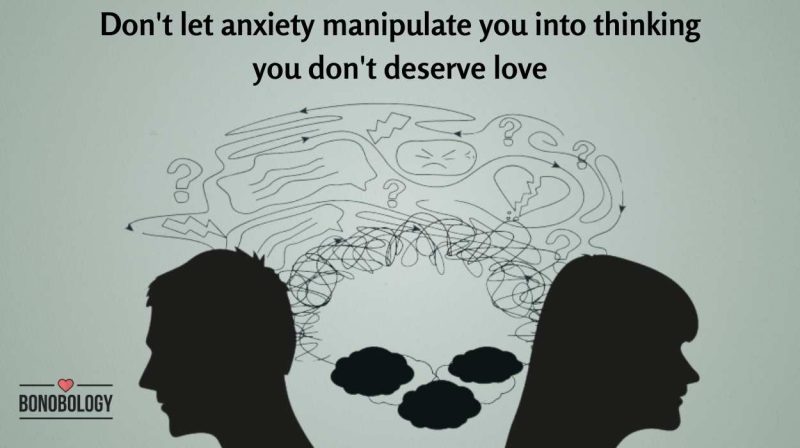
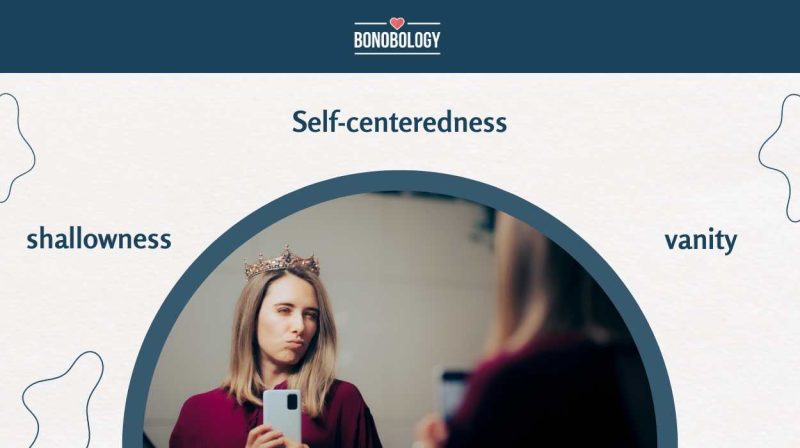

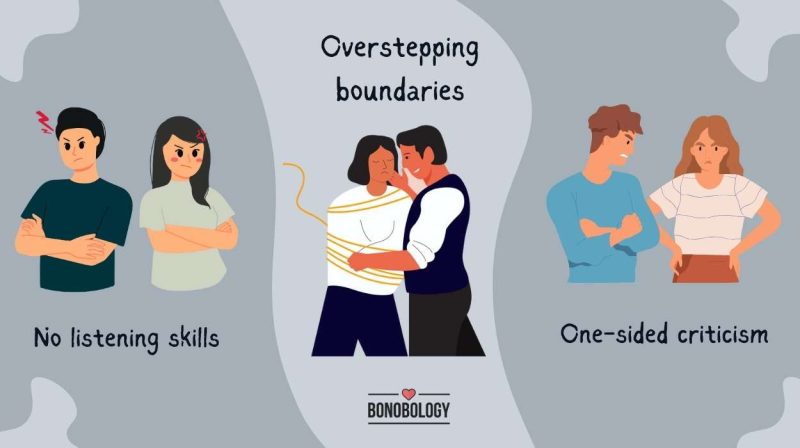
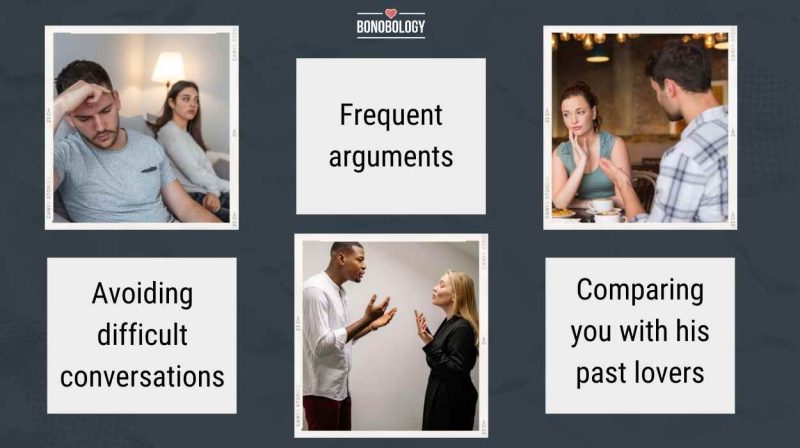
Featured
Unintentional Love Bombing: 9 Ways You May Be Overwhelming Your Partner
13 Signs Of A Hot And Cold Relationship & How To Break The Pattern
21 Subtle Signs You’re Not Really In Love With Your Partner
I Hate My Girlfriend: Why You Feel This Way And What To Do
When Health Challenges Affect Your Relationship Dynamics
5 Harsh But True Signs He’ll Never Marry You
21 Signs That You Are Alone In A Relationship
11 Situationship Red Flags You Should Know About
Why Do I Get Attached So Easily? 9 Possible Reasons and Ways to Stop
How To Respond To DARVO: Expert Lists 7 Strategies
What Is Fexting, And Why Is It Bad For Your Relationship?
Are Narcissists Capable Of Love?
11 Prominent Male Narcissist Traits to Watch For
Why Does My Girlfriend Hit Me? Expert Shares 11 Possible Reasons And Ways To Cope
How Does A Narcissist React When They Can’t Control You?
“My Anxiety Is Ruining My Relationship”: 6 Ways It Does And 5 Ways To Manage It
13 Distinctive Traits Of Female Narcissists Revealed
Recognizing The 13 Red Flags Of A Controlling Relationship
What Are The Examples Of Narcissistic Behavior In A Relationship?
11 Signs He Is Forcing Himself To Love You